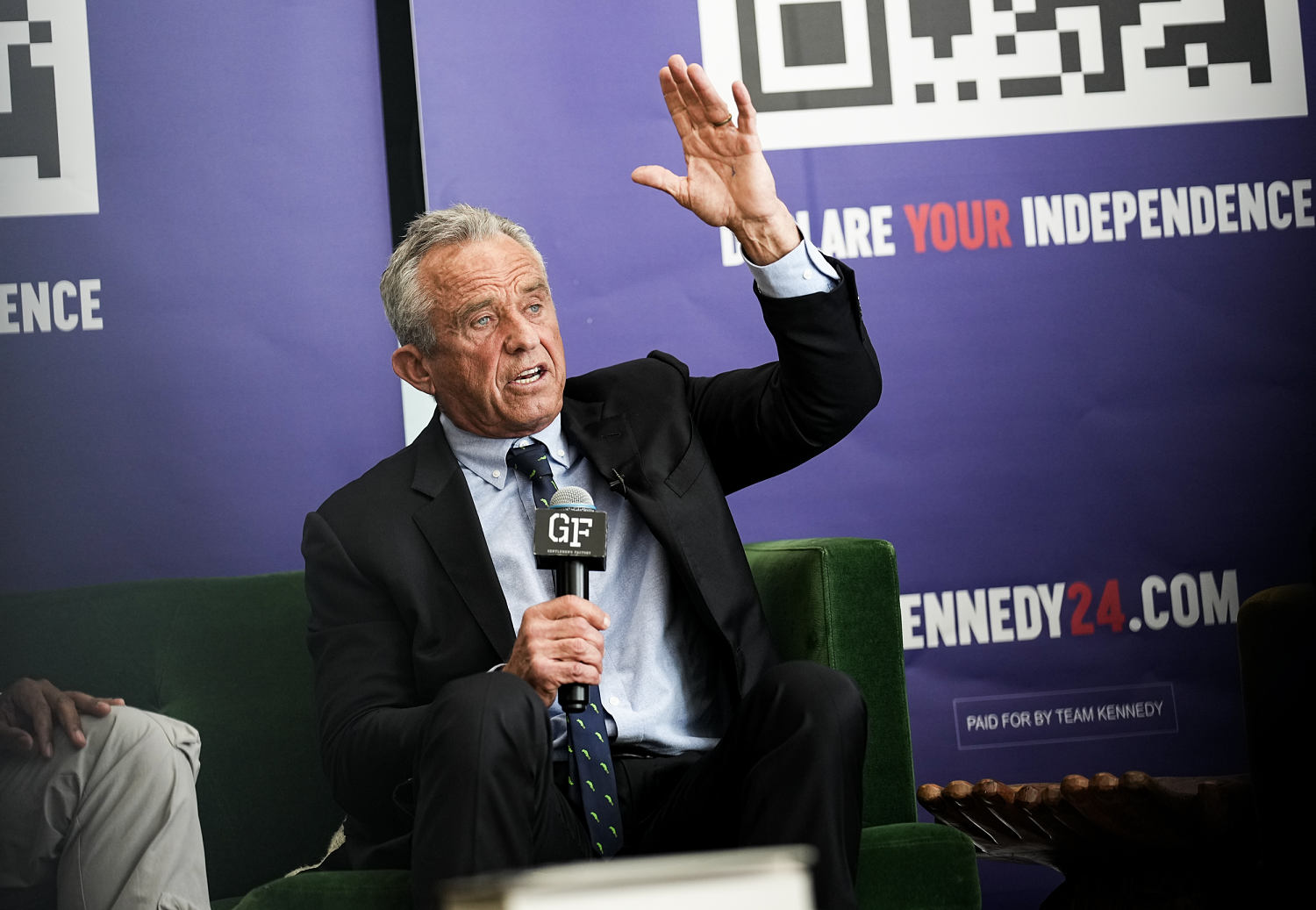Robert F. Kennedy Jr. is set to announce his running mate this month as he wages a long-shot independent bid for president. And the timing is no accident — his decision is set to come as he needs a running mate to qualify for the ballot in a majority of states, with some of their filing deadlines coming up soon.
Kennedy is attempting to qualify for the ballot in all 50 states, and at least 26 of them require him to file his nomination papers with a running mate named, according to an NBC News analysis of state ballot access requirements.
Qualifying for each state’s ballot is a daunting enterprise that could cost millions of dollars and requires gathering more than 900,000 signatures nationwide.
The campaign has estimated the effort could cost $15 million. Kennedy’s campaign had just over $4.8 million in its account at the end of January, according to a fundraising report filed with the Federal Election Commission. Meanwhile, ballot access deadlines are also fast approaching. They have already passed in North Carolina, Utah and Idaho.
Kennedy’s campaign has said it has gathered enough signatures to qualify for the ballot in Utah, as well as New Hampshire, Nevada and Hawaii. The campaign is starting to gather signatures in Texas, as well.
The pro-Kennedy super PAC American Values 2024 announced this week that it would stop collecting signatures on Kennedy’s behalf but said it had collected more than enough to place him on the ballot in Arizona, Michigan, Georgia and South Carolina. However, some petition signatures usually get invalidated when they are turned in and checked by election officials, which is why campaigns and other groups often try to gather more than the minimum.
There’s another twist: Although the filing deadline for independent candidates has passed in North Carolina, Kennedy’s supporters there are taking a different route to the ballot. In North Carolina and five other states — Hawaii, California, Delaware, Mississippi and Texas — his supporters have formed their own political parties.
That path, which is also the way No Labels is trying to get its presidential ticket on the ballot nationwide, requires fewer signatures in some states than the regular candidate petition-gathering Kennedy is doing elsewhere. In North Carolina, for example, an independent presidential candidate would have had to collect more than 83,000 signatures by March 5 to qualify.
But a new political party must collect only around 13,000 petition signatures by early June.
Still, Kennedy’s campaign faces a sprint. By August, more than 21 states’ deadlines will have passed, with 24 additional states imposing deadlines throughout that month.
The processes vary by states, and some require filing fees in addition to petition signatures. But the threshold to qualify for the ballot is somewhat lower in a handful of the most important swing states, where Kennedy could have the most impact on a close presidential race.
In Wisconsin, one of the closest states in 2020, an independent presidential candidate needs only 2,000 petition signatures to qualify for the ballot — just a tiny fraction of the more than 3.4 million voters in the state.
And independent presidential candidates need to collect just 7,500 signatures in Georgia and 5,000 in Pennsylvania, two more states that were decided by close margins in 2020.
Source: | This article originally belongs to Nbcnews.com










